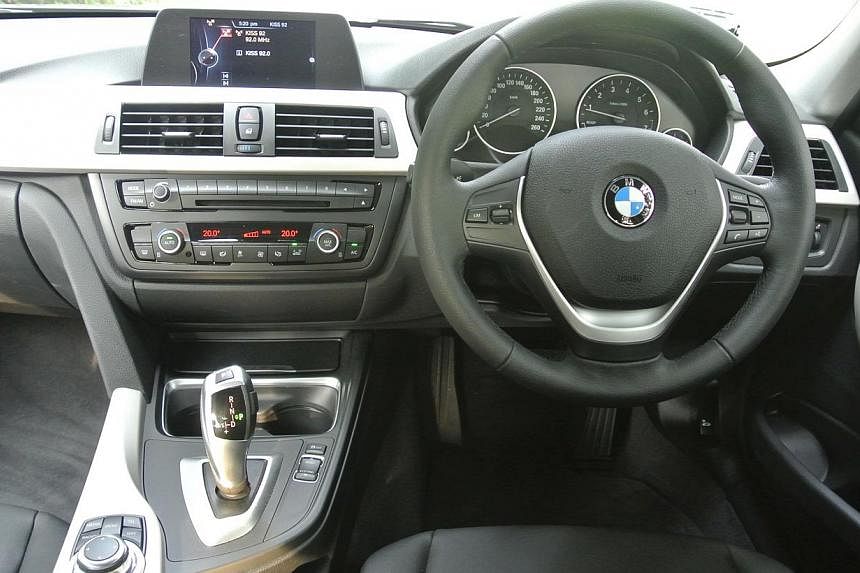A well-brewed cuppa can perk you up in the morning, just like a well-built car can bring pleasure when you are running mundane errands such as going grocery shopping.
In this respect, the new BMW 320i EfficientDynamics does not disappoint. The newcomer is a quintessential BMW which is not short of "BMW-ness".
But the car is likely to cause some confusion before it brings any pleasure. And it has to do with how BMW names its 3-series models.
The newcomer is badged simply as a "320i" on its bootlid and there is nothing to set it apart visually from the regular 320i reviewed by Life! in August 2012.
While the regular 320i packs a 2-litre power plant, the new car is powered by a 1.6-litre twin-scroll turbocharged engine, which is a tuned-up version of the engine lurking in the entry-level 316i.
Confused? Just think of the car as wearing the suit of a 320i but having the souped-up heart of a 316i. Or do not think at all and enjoy the car the way it is.
On the go, it feels faster than its published 7.6-second dash from zero to 100kmh. Its deficits against the 2-litre 320i (170bhp vs 184bhp; 250Nm vs 270Nm) do not matter at all.
This is because the lower numbers do not erode the car's drive characteristics. It still has the same razor-sharp steering feel which connects the driver to the car, and the feeling of instantaneous shove from the slightest pressure on the throttle.
Its eight-speed gearbox is a gem, always able to find the right cogs when left in Drive.
And the car excels in fuel efficiency too. It boasts the lowest fuel consumption of 5.4 litres per 100km in the family of petrol-powered 3-series sedans.
While the best I achieved was 6.5 litres per 100km over my three-day test drive, it was only because I drove mostly in the Sport mode, preferring it over Comfort and Eco-Pro.
The BMW-ness of the car extends to the cockpit. The tactile steering wheel, inviting instrument display cluster, excellent gear shift lever and clearly laid-out centre console are exactly where they should be - logical and within easy reach.
The equipment level is generous, with the bells and whistles found in its 2-litre sibling. These include steering-mounted cruise control, memory seats, keyless access and ignition, a stop-start system and a factory-fitted navigation system.
But the car is not without niggling issues. It has only rear parking sensors when front ones would have been equally useful. That is because the curvy design of the bonnet makes it hard for drivers new to BMW cars to gauge the front corners precisely. The glove compartment is also miserably shallow.
Overall, the 3-series sedan is an important model for BMW. The 1er and 2er are lifestyle cars, while the 3er is the "proper" entry-level sedan.
It is thus not surprising that the 320i ED made it to the local line-up when there are already six sedan variants: 316i, 320i, 320d, 328i, 335i and ActiveHybrid 3. It makes sense to corner the market and offer potential owners more choices.
In short, the 1.6-litre 320i ED makes an attractive preposition. It is $24,000 cheaper than the 2-litre 320i, but it does not suffer from any significant performance and equipment deficit.
Spread over 10 years, the sum translates to savings of $6.70 each day. That is more than enough for drivers to have a cup of Starbucks coffee daily over 10 years.




